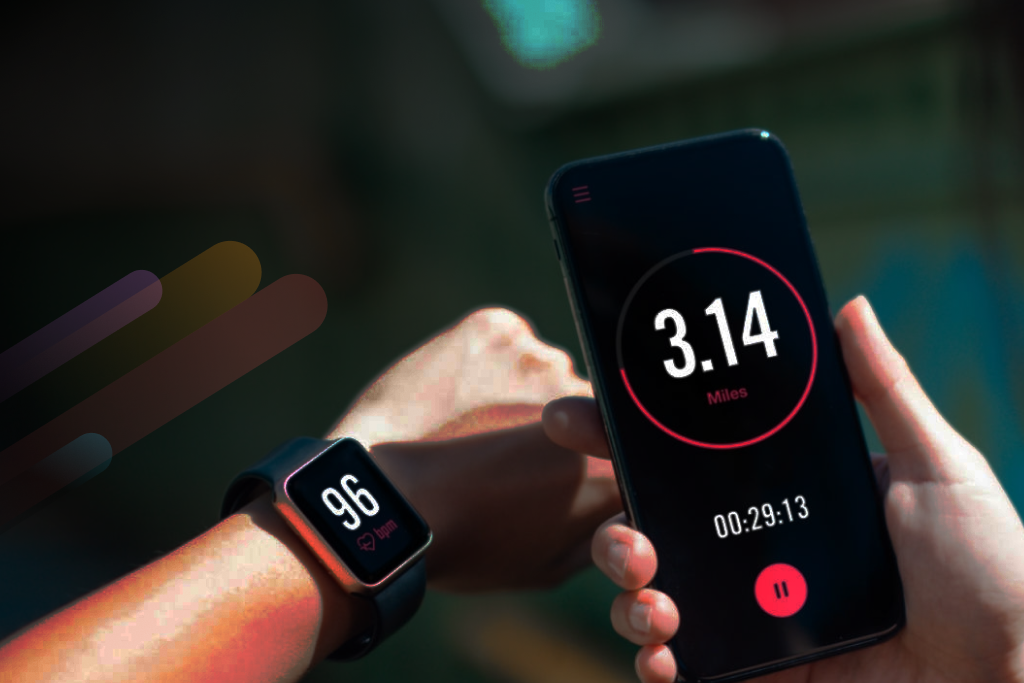
‘Digital Care’ is the new normal for the Healthcare industry. And every stakeholder of this industry is joining the digital revolution.
But did you know, the healthcare and pharmaceutical industries have lagged, when it comes to implementing digital strategies. In fact, in a recent survey, only 7 percent of healthcare and pharmaceutical companies said they had gone digital, compared to 15 percent of companies in other industries.
It’s the fact that the healthcare market is enormous. And studies predicted that the US’s national health spending is projected to reach $6.2 trillion by 2028. So, for those who haven’t joined this revolution yet but planning to transform their healthcare products and services, there’s still time for you to get well-versed in digital technology and use it to bring in more business.
This article is aimed at getting aware of six key trends which will reshape the entire healthcare industry in 2021 through promising digital technologies. Let’s look at these top trends.
When you think of ‘on-demand,’ you think of consumers who want things at their convenience, on their own time, and wherever they happen to be. Patients seek on-demand healthcare because of their busy schedules and Technology brings providers right into the living rooms of patients.
For example, wearable medical devices or sensors equipped with smartphones can continuously monitor a variety of health issues to help those with chronic health conditions. Conversational user interfaces and chatbots are beginning to interact with clinical data, empowering providers with information by which to make the next best decision.
Innovative businesses are exploring new ways in which technology can improve care delivery. For instance, seamless scheduling, registration, and access with physicians, medical equipment to assist with remote monitoring, clinical data-based predictions, and diagnosis are benefits of digitization to match consumer’s healthcare needs.
In the past, most patients were satisfied with undergoing a physical once a year and only checking in with their doctors when something went wrong. But in the digital age, patients are focusing on prevention and maintenance and demanding information about their health more.
Lots of Medical device companies embarrassing this change to adopt new digital technologies and collecting their health data through wearable medical devices. Even new innovating ideas are giving a wide spectrum of possibilities with predictive and diagnostic care benefits to consumers.
Some of the widely usable wearable devices include:
Wearable health monitoring devices are a great source for healthcare companies to collect a flood of clinical data of their consumers which could be used in various ways for their benefits and to dominate the healthcare transformation.
Other benefits for healthcare companies who invest in these products:
According to a recent report, the wearable medical device market is expected to reach more than $27 million by 2023, a spectacular jump from almost $8 million in 2017. No wearable technology company irrespective of their product segment is ready to lose out on this market share.
Big data aggregates information about a business through formats such as social media, e-commerce, online transactions, and financial transactions, and identifies patterns and trends for future use. Big data has rapidly made its way into a wide range of industries. Healthcare is ripe for big data initiatives—as one of the largest and most complex industries in the United States, there is an incredible number of potential applications for predictive analytics.
For the healthcare industry, big data can provide several benefits, as mentioned below:
With all benefits in mind, healthcare and medical device companies can invest in setting up technology to collect and organizing their data. With the consumer market understanding, you can determine product development or modernization iterations and budgets based on existing and future demand.
Artificial intelligence (AI) is more than just a digital transformation trend in healthcare. It is one of the most powerful tools in the medical industry’s toolbox.
AI has the potential to make high-quality healthcare more accessible and affordable by assisting healthcare providers to make the best treatment decisions for their patients. In addition, it can also transform the back office by performing otherwise tedious and time-consuming administrative tasks.
Few of the important applications where AI in healthcare will be useful as:
There are also other major applications of AI in areas like precession medicine, medical imaging, drug discovery and genomics.
With these massive applications of AI, the healthcare and medical devices industry is investing tremendously in AI-based digital solutions. Start-ups are already jumping into these opportunities and no doubt, early examples of showing potential in AI and machine learning are enough to convince any CEO looking to navigate their health products into reaching digital maturity that AI is worth the investment.
Prediction of diseases before it happens and provides treatments to save lives is the major sought trend in the healthcare industry. Thanks to big data and AI, this is no more a dream.
Wearable devices and other Digital apps can gather important clinical data. This can help healthcare companies predict illness may develop in the future and also can provide healthy lifestyle recommendations for their patients.
Another miracle of Digital transformation is making the whole healthcare experience personalized for a patient with his full health history data integrated from various sources and analyzed in one place.
Whether you are a small-scale healthcare service provider or a big established medical organization, providing a personalized care experience to your consumers is going to define your share in the future of the healthcare industry.
Ten years ago, telling people you could reduce their pain with a device similar to a video game would have seemed a funny joke. But now VR and AR being used to relieve the pain of the patients in different cases and it's profoundly changing the way patients are being treated.
Many people are being suffered from some or other form of chronic pain. For them, VR is a safer, more efficient alternative to drugs. VR technology is being used not only to treat pain, but everything from anxiety to post-traumatic stress disorder, and stroke.
Not just this but there more applications of VR and AR in healthcare. Doctors are using virtual reality simulations to perfect their skills or to plan complicated surgeries. VR headsets also motivating wearers to exercise and help children with autism learn how to navigate the world.
If you’re a healthcare company planning your digital transformation of products or services, you should highly consider investing in this technology. VR is a powerful communication channel that would allow you, among other things, to get a better sense of your customers’ needs and virtually engage them with your products or services.
These accelerating digital trends are disruptive and going to change the meaning of “care” in the healthcare domain.
The healthcare system is undergoing a revolutionary upgrade in how information is obtained and utilized. Now consumers want to be able to access all information of their health record and that too from the palm of their hand. Patients are now becoming participants in their well-being.
When people are expecting health monitoring and diagnosis from the palm of their hand, 5G wireless internet technology is going to be accelerating the shift to provide health care instantaneously.
The technology can run up to 100 times faster than the current cellular connection, which made industry experts confident that it will completely change the healthcare landscape.
5G will make “buffering” a thing of the past, will do instantaneous streaming, downloading, and uploading medical data, getting stats, reports, analysis instantaneously, and helping doctors for real-time diagnosis.
It is in the wearable medical device market where 5G will cause the greatest disruption.
So, ultimately its digital innovation and clinical data is the name of game in the future of the healthcare industry.
Whether you are a healthcare service provider or medical device company, for any business, the goal is to create products and services that improve lives or fulfill a want or need of consumers. Technology can help you realize this goal. This is the time you should ride the digital transformation to create tomorrow’s healthcare solutions, today.
Do you need guidance with your digital transformation initiatives? Pragmatyc has worked on cutting-edge digital initiatives that improve patient outcomes and quality of care. Reach Pragmatyc at colaborate@pragmatyc.com.






Collaborate
Careers
Pragmatyc Inc
22777, Zulla Chase Place,
Ashburn, VA, 20148,
USA
B wing, North Block, CF Building,
MIHAN SEZ,
Nagpur, MH, 441108
INDIA
DBA- NexGenSm
Innovation One, Level 1, Zone D,
Gate Avenue, DIFC
Dubai